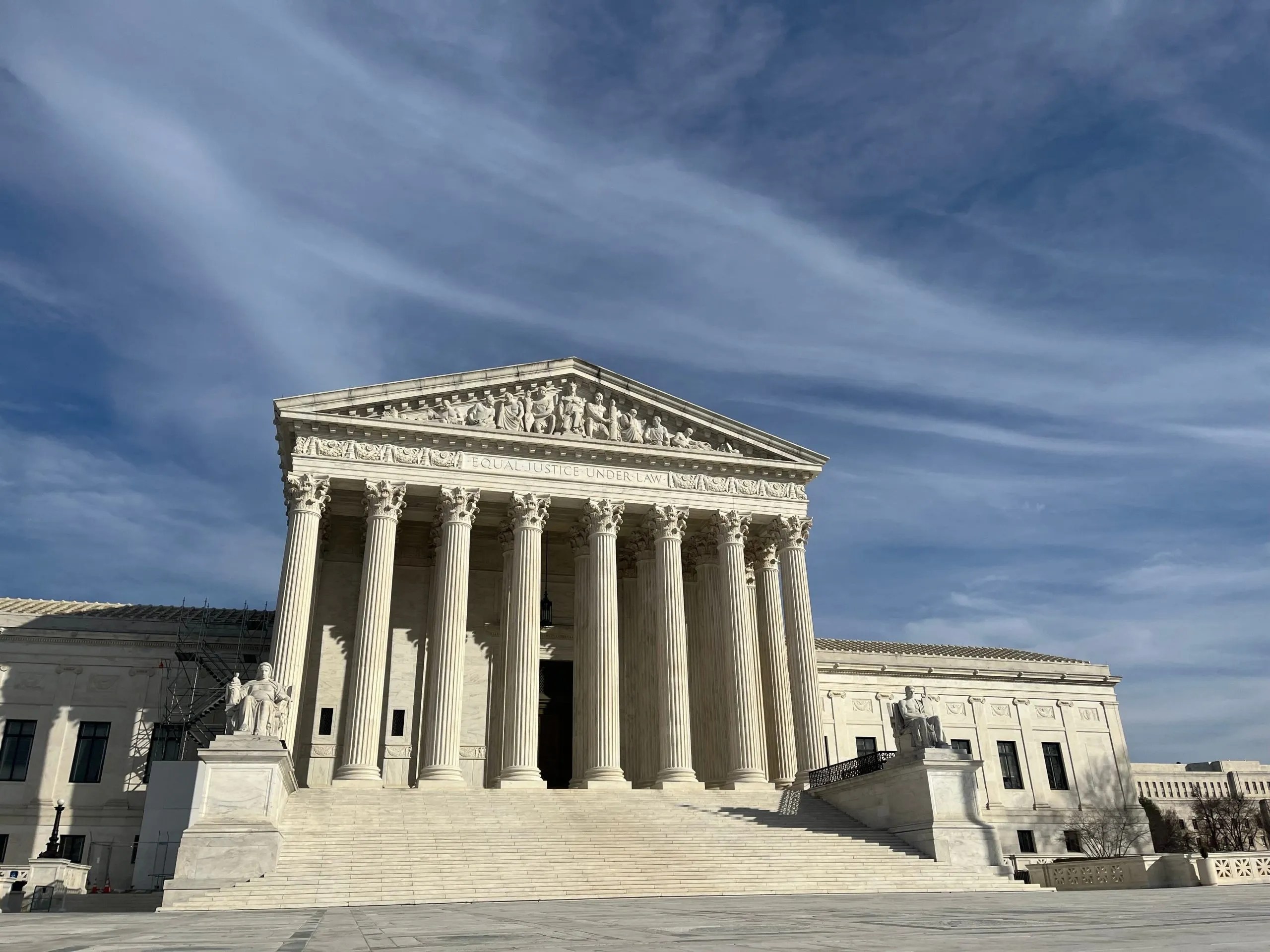Venezuelan TPS recipients tell justices to let status stand


Lawyers for a group of Venezuelan nationals urged the Supreme Court on Thursday to keep in place a ruling by a federal judge in San Francisco that prohibits Secretary of Homeland Security Kristi Noem from ending their designation under a special immigration program giving them temporary protection from deportation.
Granting the government’s request and putting the order by Senior U.S. District Judge Edward Chen on hold “would radically shift the status quo,” wrote Ahilan Arulanantham, a UCLA law professor representing the Venezuelan citizens. It would mean that “nearly 350,000 people would immediately lose the right to live and work in this country,” Arulanantham emphasized.
The plaintiffs in this case are beneficiaries of the Temporary Protected Status program, which allows them to stay in the United States and work. Under federal law, the DHS secretary can designate foreign citizens under the TPS program when she determines that they cannot return safely to their home country because of a natural disaster, armed conflict, or other “extraordinary and temporary conditions in the foreign state.” When a country no longer meets those criteria, the law provides, the secretary should terminate the TPS designation.
The initial designation of Venezuela under the TPS program was made in 2021, by then-DHS Secretary Alejandro Mayorkas, who subsequently extended the program.
In February, Noem ended both the TPS designation and efforts to extend it for a particular group of Venezuelan nationals. The plaintiffs in this case then went to federal court in San Francisco, asking Senior U.S. District Judge Edward Chen to delay Noem’s termination.
Chen issued an order on March 31 that prohibited Noem from ending the TPS designation, calling her conduct “unprecedented” and suggesting that the decision to revoke the designation had been based on negative stereotypes about Venezuelan migrants.
When the U.S. Court of Appeals for the 1st Circuit turned down the government’s request to pause Chen’s ruling while its appeal continued, U.S. Solicitor General D. John Sauer came to the Supreme Court, asking the justices to intervene. He emphasized that the TPS program “implicates particularly discretionary, sensitive, and foreign-policy-laden judgments of the Executive Branch.”
The Venezuelan nationals told the justices that putting Chen’s order on hold “would cause more harm than it would prevent, inflicting massive injury on” them “through lost employment and widespread deportations to an unsafe country.” By contrast, they suggested, the government has not pointed to any “harm it has suffered or will suffer between now and when the Ninth Circuit decides its appeal, which is set for argument on July 16.” Indeed, they noted, the government did not even ask the Supreme Court to step in for “nearly two full weeks after” the 9th Circuit declined to do so.
Moreover, the group added, they are likely to win on the merits of their claim – one of the key criteria the justices consider in determining whether to grant temporary relief – because although federal immigration law gives the DHS secretary significant discretion in deciding whether to designate a country for TPS or to redesignate it, she has substantially less discretion once those designations are made, “both as to the timing of the review process and what criteria the Secretary must use in deciding whether to extend or instead terminate TPS protection.” And federal law does not give her any power to vacate or rescind an extension, the plaintiffs emphasized.
The Venezuelan nationals’ filing in this case came on the same afternoon that the Trump administration asked the courtto intervene in another immigration dispute, involving a ruling by a federal district judge in Massachusetts that blocked the Department of Homeland Security from revoking the Biden administration’s grant of parole – that is, permission to temporarily stay in the United States for humanitarian or public interest reasons – to more than 500,000 noncitizens from Cuba, Haiti, Nicaragua, and Venezuela.
Posted in Emergency appeals and applications
Cases: Noem v. National TPS Alliance